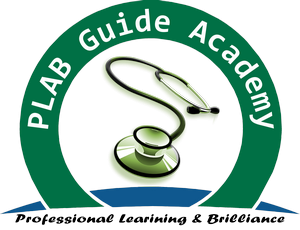Your Path to Success Begins Here
How to Use This Planner
-
This plan is divided into three phases:
- Phase 1 (Days 1-45): Comprehensive study of high-weightage subjects.
- Phase 2 (Days 46-75): Focused revision, practice, and mocks.
- Phase 3 (Days 76-90): Intensive mock tests and final preparation.
-
Each day includes a balance of study, practice, and revision.
-
Allocate 6-8 hours per day for preparation, with breaks to avoid burnout.
-
Customize the planner based on your strengths and weaknesses.
PLAB-1 Weightage Guidance
The subjects listed below are prioritized according to their approximate weightage in the exam:
- Medicine (including Neurology, Cardiology, Respiratory, Gastroenterology, and Endocrinology): 25-30%
- Surgery (including Orthopaedics, Urology, and Vascular Surgery): 15-20%
- Paediatrics: 10-15%
- Obstetrics & Gynaecology: 10-15%
- Psychiatry: 5-10%
- Ethics and Professionalism: 5-10%
- Other Subjects (Ophthalmology, ENT, Dermatology, Pharmacology, etc.): 5-10%
Study Plan
Phase 1: Comprehensive Study (Days 1-45)
This phase covers the foundation. Spend 1-2 days per topic, focusing on high-yield concepts.
Week 1–2: Medicine (Neurology, Cardiology, Respiratory Medicine)
- Day 1-2: Neurology – Stroke, epilepsy, headache types, CNS infections.
- Day 3-4: Cardiology – ACS, arrhythmias, heart failure, hypertension.
- Day 5-6: Respiratory Medicine – Asthma, COPD, pneumothorax, PE.
- Day 7: Revision of Week 1 topics and MCQs practice.
Week 3: Medicine (Gastroenterology, Endocrinology)
- Day 8-9: Gastroenterology – Liver disease, IBD, peptic ulcers.
- Day 10-11: Endocrinology – Diabetes, thyroid disorders, adrenal pathology.
- Day 12: Ethics and professionalism – GMC guidelines, patient autonomy, duty of care.
- Day 13: Revision of Week 2 and 3 topics.
- Day 14: Practice full-topic MCQs.
Week 4: Surgery (Orthopaedics, Urology, General Surgery)
- Day 15-16: Orthopaedics – Fractures, arthritis, bone tumors.
- Day 17-18: Urology – BPH, renal stones, UTIs, renal cancers.
- Day 19-20: General Surgery – Hernias, breast conditions, surgical infections.
- Day 21: Revision of Week 4 topics and MCQs practice.
Week 5: Obstetrics & Gynaecology
- Day 22-23: Obstetrics – Antenatal care, labour complications, post-partum hemorrhage.
- Day 24-25: Gynaecology – Menstrual disorders, ovarian cysts, infertility.
- Day 26: Paediatrics – Neonatal jaundice, developmental milestones, infections.
- Day 27: Revision of Week 5 topics and practice MCQs.
Week 6: Psychiatry, ENT, Ophthalmology, Dermatology
- Day 28: Psychiatry – Depression, anxiety, schizophrenia, substance misuse.
- Day 29: ENT – Otitis media, hearing loss, sinusitis.
- Day 30: Ophthalmology – Cataracts, glaucoma, red-eye conditions.
- Day 31: Dermatology – Psoriasis, eczema, skin infections.
- Day 32-33: Practice MCQs and revisit weak topics.
Phase 2: Revision and Practice (Days 46-75)
Week 7–9: High-Yield Topic Revisions
Focus on the top-weighted subjects (Medicine, Surgery, Paediatrics, and OBGYN). Allocate 1 day per topic and solve 100+ MCQs per day.
- Day 34-50: Revisit Neurology, Cardiology, Respiratory, Gastroenterology, Endocrinology, and Ethics.
- Day 51-60: Revisit Surgery, Obstetrics, Gynaecology, and Paediatrics.
Week 10: Comprehensive MCQ Practice
- Day 61-70: Solve full-length mock tests and review answers in detail. Analyze weak areas.
Phase 3: Final Preparation and Mocks (Days 76-90)
This phase is for consolidating knowledge and gaining exam confidence.
Week 11: Intensive Mock Tests
- Day 71-80: Solve 1 full-length mock per day (3-hour timed session).
- Spend 3-4 hours reviewing answers and clarifying concepts.
Week 12: Final Revisions
- Day 81-85: Revise Ethics, Professionalism, and common scenarios (e.g., breaking bad news, patient safety).
- Day 86-90: Final mocks and key topic revision.
Tips for Success
- Study Consistently: Stick to the planner and avoid procrastination.
- Practice MCQs Daily: Aim for at least 50-100 questions per day during Phase 1 and increase during Phase 2 and 3.
- Use Trusted Resources: Focus on materials aligned with PLAB-1 requirements, like GMC guidelines and high-yield textbooks.
- Simulate Exam Conditions: During mocks, follow the exact timing and environment of the real exam.
- Seek Support: Attend live sessions, workshops, or online discussions through PLAB Guide Academy.
This 90-day planner ensures focused preparation, covering all essential subjects according to their weightage. By following this plan, candidates will be well-prepared to tackle the PLAB-1 exam with confidence.
